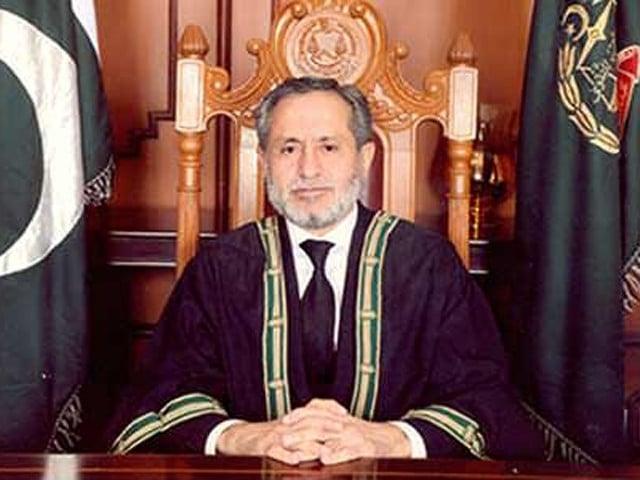Islamabad:
Juma Jamal Khan Mandokhail, a member of the constitutional bench, pointed out on Tuesday that it was not necessary for the court to be based only on the arguments of a party; The court could rather exercise its powers to make “total justice”.
Located on a constitutional bench of seven members of the Supreme Court, led by Judge Aminuddin Khan, judge Mandokhail asked why an anti-terrorism court took care of the trial in the case of the attack on the Parliament, while a military court was responsible for the trial for the attack on military installations.
The court heard an intra-haired appeal against a previous verdict by the Supreme Court which prevented the military courts from trying civilians. During the hearing, the FB Ali affair over 50 was also referenced.
FB Ali, a retired brigadier, was tried and sentenced by a military court in 1975 for trying to overthrow the Minister of the time, Zulfikar Ali Bhutto. His appeal was rejected by a bench from the Supreme Court of five members, led by Chief Judge Hamood Rahman.
Judge Naeem Akhtar Afghan, seated on the bench, observed that the FB Ali affair was decided under the 1962 Constitution, which means that it could not be considered through the lens of the 1973 Constitution.
The lawyer of the Ministry of Defense, Khawaja Haris, noted that in the FB Ali case, it was indicated that military trials were justified. Judge Mandokhail replied, stressing that he was supported in the FB Ali case that article 6 (3) of the 1962 Constitution had been discussed, although Haris replied that she had not been discussed in this case.
Judge Mandokhail then asked the lawyer to examine the case again. Haris, reacting to the remarks, said that he had come only to help the court. Judge Mandokhail apologized if his words had offended Haris, who admitted that he was commendable that the court examined the case carefully.
Judge Mandokhail stressed the importance of the case, declaring: “The most respected institution for us is the parliament. If there is an attack on parliament, the trial is held before the anti-terrorism court, but if the attack is on a military installation, why is the trial held before a military court? By virtue of which principle is this military distinction?”
The hearing was adjourned until Wednesday morning, with Khawaja Haris ready to regain his arguments.




